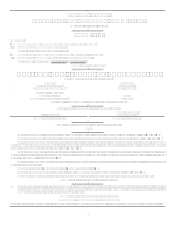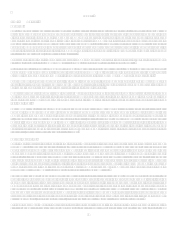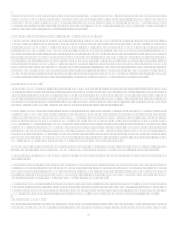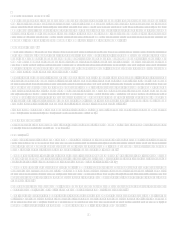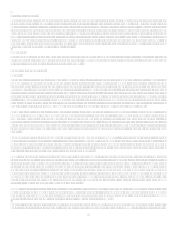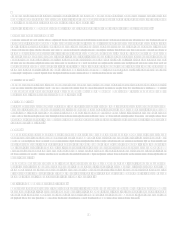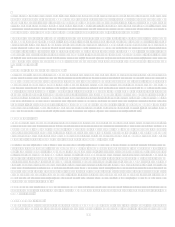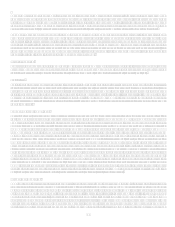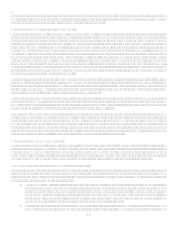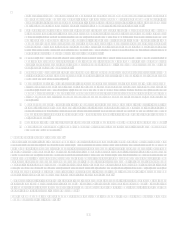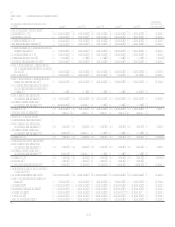Capital One 2007 Annual Report Download - page 33
Download and view the complete annual report
Please find page 33 of the 2007 Capital One annual report below. You can navigate through the pages in the report by either clicking on the pages listed below, or by using the keyword search tool below to find specific information within the annual report.11
sharing information, then the relevant entity or entities provide such options in the privacy notice. In addition to adopting federal
requirements regarding privacy, the GLBA also permits individual states to enact stricter laws relating to the use of customer
information. To date, at least California, Vermont and North Dakota have done so by statute, regulation or referendum, and other
states may consider proposals which impose additional requirements or restrictions on the Corporation and/or the Banks. If the federal
or state regulators of the financial subsidiaries establish further guidelines for addressing customer privacy issues, the Corporation
and/or one or more of the Banks may need to amend their privacy policies and adapt their internal procedures.
Like other lending institutions, the Banks utilize credit bureau data in their underwriting activities. Use of such data is regulated under
the FCRA on a uniform, nationwide basis, including credit reporting, prescreening, sharing of information between affiliates, and the
use of credit data. The Fair and Accurate Credit Transactions Act of 2003 (the FACT Act), which was enacted by Congress and
signed into law in December 2003, extends the federal preemption of the FCRA permanently, although the law authorizes states to
enact identity theft laws that are not inconsistent with the conduct required by the provisions of the FACT Act. If financial institutions
and credit bureaus fail to alleviate the costs and consumer frustration associated with the growing crime of identity theft, financial
institutions could face increased legislative/regulatory and litigation risks. In addition, federal regulators are still in the process of
promulgating regulations under the FACT Act; there can be no assurance that such regulations, when enacted, will not have an
adverse impact on us.
Investment in the Corporation and the Banks
Certain acquisitions of capital stock may be subject to regulatory approval or notice under federal or state law. Investors are
responsible for ensuring that they do not, directly or indirectly, acquire shares of capital stock of the Corporation in excess of the
amount which can be acquired without regulatory approval. Each of the Banks is an insured depository institution within the
meaning of the Change in Bank Control Act. Consequently, federal law and regulations prohibit any person or company from
acquiring control of the Corporation without, in most cases, prior written approval of the Federal Reserve or the OCC, as applicable.
Control is conclusively presumed if, among other things, a person or company acquires more than 25% of any class of voting stock of
the Corporation. A rebuttable presumption of control arises if a person or company acquires more than 10% of any class of voting
stock and is subject to any of a number of specified control factors as set forth in the applicable regulations. Additionally, COB is a
bank within the meaning of Chapter 13 of Title 6.1 of the Code of Virginia governing the acquisition of interests in Virginia
financial institutions (the Financial Institution Holding Company Act). The Financial Institution Holding Company Act prohibits
any person or entity from acquiring, or making any public offer to acquire, control of a Virginia financial institution or its holding
company without making application to, and receiving prior approval from, the Bureau of Financial Institutions.
Non-Bank Activities
The Corporations non-bank subsidiaries are subject to supervision and regulation by various other federal and state authorities.
Insurance agency subsidiaries are regulated by state insurance regulatory agencies in the states in which they operate. Capital One
Asset Management, LLC, Capital One Securities, LLC (d/b/a Capital One Investments, LLC), and North Fork Financial Advisors,
L.L.C. are registered investment advisers regulated under the Investment Advisers Act of 1940. Capital One Asset Management
provides investment advice to investment companies subject to regulation under the Investment Company Act of 1940. Amivest
Corporation, a registered investment advisor, ceased operations on December, 31, 2007.
Capital One Securities, LLC, Capital One Southcoast Capital, Inc., and NFB Investment Services Corporation are registered broker-
dealers regulated by the Securities and Exchange Commission (the SEC) and the Financial Industry Regulatory Authority. In
addition, Capital One Securities, LLC and Capital One Southcoast Capital, Inc. are regulated by the Louisiana Office of Financial
Institutions through the Deputy Commissioner of Securities. The Companys broker-dealer subsidiaries are subject to, among other
things, net capital rules designed to measure the general financial condition and liquidity of a broker-dealer. Under these rules, broker-
dealers are required to maintain the minimum net capital deemed necessary to meet their continuing commitments to customers and
others, and are required to keep a substantial portion of their assets in relatively liquid form. These rules also limit the ability of
broker-dealers to transfer large amounts of capital to parent companies and other affiliates. Broker-dealers are also subject to other
regulations covering their business operations, including sales and trading practices, public offerings, publication of research reports,
use and safekeeping of client funds and securities, capital structure, record-keeping and the conduct of directors, officers and
employees. As part of our efforts to streamline our operations, we intend to merge Capital One Securities, LLC and NFB Investment
Services Corporation later in 2008.
NFB Agency Corporation (NFB Agency) is a New York State licensed insurance agency that is regulated by the state insurance
regulatory agencies in the states in which it operates. NFB Agency provides both personal and business insurance services to retail and
commercial clients.
USA PATRIOT Act of 2001
On October 26, 2001, the President signed into law the USA PATRIOT Act of 2001 (the Patriot Act). The Patriot Act contains
sweeping anti-money laundering and financial transparency laws as well as enhanced information collection tools and enforcement


